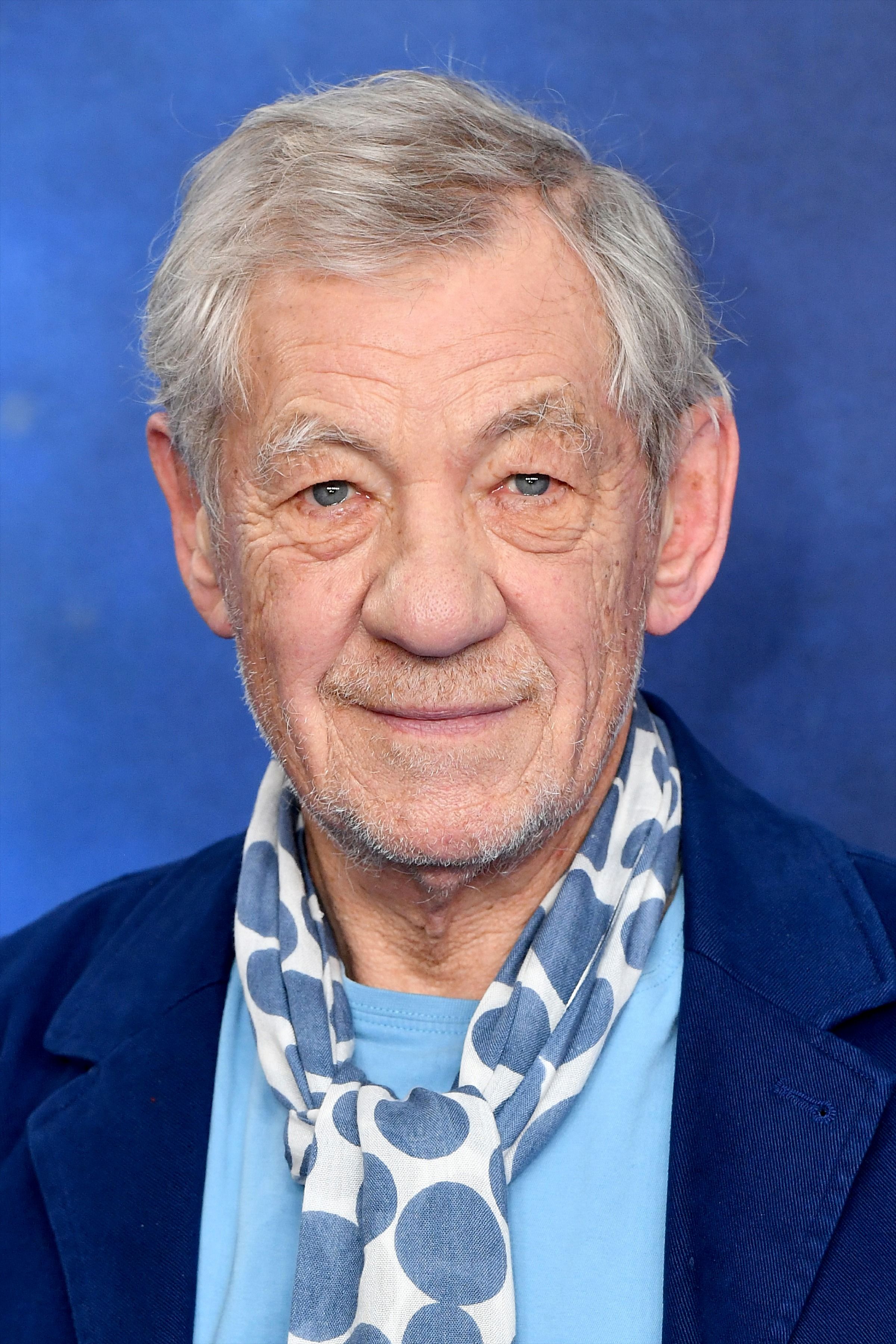Ian Boden - Exploring Notable Figures
When we consider names that spark conversation, Ian Boden might come to mind for some, a person whose contributions, perhaps, resonate within certain circles. Our discussion today, you see, looks at how names like 'Ian' appear in different contexts, drawing from a collection of thoughts and questions that touch upon various individuals bearing this very name.
While the material we are looking at doesn't specifically detail the life or work of Ian Boden himself, it does, interestingly enough, offer glimpses into the experiences and impacts of other figures named Ian. This collection of insights, it seems, paints a picture of how a name can pop up in a variety of fields, from popular culture to the depths of scientific thought and even financial markets.
It's almost as if these scattered mentions, taken together, give us a chance to think about the many ways individuals with the same first name can leave their mark. We will, of course, explore these different "Ians" as presented in the provided thoughts, offering a perspective on their respective areas of influence, and how they are perceived by others.
Table of Contents
- The Many Faces of Ian - A Look at Noteworthy Individuals
- Understanding Ian's Role in Popular Stories
- Exploring the Sound of Ian
- Looking at Collaborative Efforts Involving Ian
The Many Faces of Ian - A Look at Noteworthy Individuals
It's quite fascinating, really, how a single name can belong to so many different people, each with their own unique story and impact on the world. When we consider the name Ian, for instance, our reference material brings up a couple of individuals who have made quite a splash in their own areas. This gives us, you know, a chance to think about the varied paths people take, even when they share a common identifier. It's not just about one person, but the wider picture of contributions that can come from individuals who happen to be called Ian.
Who is Ian Goodfellow, and what's his connection to Ian Boden's field of thought?
Among the folks named Ian that our shared thoughts bring up, Ian Goodfellow stands out as someone pretty important in the world of how computers learn. He's described, quite simply, as a research scientist who used to be at Google. This person got his advanced degree, a doctorate, in machine learning from the University of Montreal back in 2014. He's also one of the original writers of a really important book about deep learning, a way for computers to recognize patterns and make decisions much like our own minds do, but on a grander scale.
He worked on this book with Yoshua Bengio and Aaron Courville. Yoshua Bengio, for his part, is seen as one of the people who truly laid the groundwork for this entire field of deep learning, like a founding figure, you might say. So, you have this mix of individuals – a seasoned hand, a middle-career expert, and someone relatively newer to the scene – all working together on something that shapes how technology works for us every day. It's almost like a passing of the torch, in a way, showing how knowledge gets built up over time.
- Claudia Tihan Onlyfans
- Liliana Jasmine Leaks
- Taraji P Henson Naked Photos
- Chloejadelopez Leaked
- Cornerstone Park Photos
While the text doesn't explicitly link Ian Goodfellow's work to any specific field Ian Boden might be involved with, if Ian Boden has an interest in the cutting-edge of technology or how smart systems are made, then understanding Ian Goodfellow's contributions would be quite relevant. It’s about the very core ideas behind artificial intelligence, which touches so many different parts of modern life and innovation. This area of study is, you know, constantly pushing forward, and Goodfellow's ideas are a big part of that push.
| Primary Role | Research Scientist |
| Affiliation (Past) | |
| Education | PhD in Machine Learning, University of Montreal (2014) |
| Notable Work | Co-author of a foundational deep learning book |
| Recognition | Considered a top expert in deep learning |
What about Ian Martin's work, and how does it relate to Ian Boden's broader interests?
Then there's another Ian mentioned in our collection of thoughts: Ian Martin. This individual comes up in a very different context, specifically within the world of money matters and economic thinking. Our text points out that some of his writings, like "Lucas Orchard," are pretty well-known in recent years. This work, along with something called "Over the Counter Market" by Duffie et al., shows up in places like the Journal of Political Economy, which is a big deal for people who study how economies work.
The text suggests that this publication often features papers on financial topics, including a fair number of theoretical pieces. It also touches upon the idea of "Nobel-level options," which sounds like very advanced concepts in financial tools. So, it appears Ian Martin is someone whose ideas are taken seriously in the financial world, particularly when it comes to deep theoretical discussions about how markets operate and how certain financial instruments function.
If Ian Boden has any sort of interest in the mechanics of money, how markets behave, or the deeper ideas that shape our financial systems, then Ian Martin's work would certainly be something to look into. It highlights the kind of rigorous thought that goes into understanding and explaining complex financial situations. This shows, you know, that the name Ian pops up in serious academic circles, contributing to knowledge that shapes how we think about wealth and trade.
Understanding Ian's Role in Popular Stories
It's interesting to see how the name Ian doesn't just show up in academic papers or tech discussions; it also appears in stories that many people enjoy. Our provided text, for example, brings up a character named Ian from a TV show, "Shameless." This character's experiences and decisions seem to be a point of much discussion and curiosity among viewers. It really shows how fictional characters can become, you know, almost real to us, sparking debates and personal reflections.
How do people view Ian's journey in the show "Shameless"?
The thoughts shared about Ian from "Shameless" really focus on his personal story and the choices he makes, especially concerning his relationships and time spent in difficult situations. People wonder about the outcome for Ian and another character, Mickey, and what everyone thinks about how their story wraps up. There's a particular part of the discussion that talks about Ian wanting to help someone, which leads to some serious trouble, including time spent in a correctional facility. This is, you know, a very human element to the story.
Later on, it seems Ian finds himself in a different situation while inside, perhaps with new connections. When Mickey, the other character, manages to get out of the facility, Ian apparently chooses not to go with him. This decision, it appears, really gets people thinking about Ian's personal growth and where his loyalties lie. There's also a memory brought up about Ian visiting Mickey's parent to ask about what life inside is like, which gives you, you know, a sense of his concern and curiosity.
These conversations about Ian's path in "Shameless" reveal how much viewers connect with the characters and their complex lives. It's about more than just watching a show; it's about feeling something for these people and discussing their very human struggles and triumphs. If Ian Boden, by any chance, enjoys popular culture or stories about personal struggles and relationships, then this aspect of the name "Ian" might resonate a bit. It shows, actually, how narratives can capture our imaginations and make us ponder life's difficult moments.
Exploring the Sound of Ian
Beyond the people named Ian, our collection of thoughts also touches on something quite different: the very sound of the name itself, or rather, the way certain sounds are put together in the Chinese language. This might seem like a small detail, but it's actually pretty important for how we hear and say words. It's about the little nuances that make language, you know, what it is.
Why does the pronunciation of 'ian' sometimes feel different?
The text brings up a point about how the sound 'ian' in Chinese is pronounced differently from 'an'. It explains that the 'a' sound in 'ian' isn't quite the same as the 'a' sound in 'an'. The former, it suggests, is more like the 'a' in 'cat' (represented as [æ]), while the latter is like the 'a' in 'father' (represented as [a]). This difference comes down to how wide your mouth is when you make the sound, which is, you know, a key part of speaking clearly.
This subtle shift happens because of the 'i' sound that comes before the 'a' in 'ian'. The 'i' sound, being a "high" vowel, tends to pull the 'a' sound up a little, making the mouth opening slightly smaller. This is a common pattern in language, where one sound affects another nearby sound. It's a natural way for sounds to change over time or when they're next to each other. This kind of detail is, you know, really important for anyone trying to learn or teach proper pronunciation.
Someone's personal thoughts even suggest that for some regional ways of speaking, the 'ian' sound isn't strange at all. They believe that teaching the standard way to say these combined sounds, rather than breaking them down into separate parts, might be a more reliable method for learning standard pronunciation. This discussion, you see, goes into the very basic building blocks of language, which is, actually, pretty fascinating if Ian Boden has any interest in linguistics or how sounds work in different tongues.
Looking at Collaborative Efforts Involving Ian
When people work together to create something, especially in academic or research settings, there are specific ways to give credit to everyone involved. Our shared thoughts touch upon this, particularly when a group of people, including someone named Ian, contributes to a piece of work. It’s about making sure everyone gets their due, which is, you know, a sign of fairness in the scholarly world.
How do we cite group work, like those involving Ian?
The text explains how to use "et al." when citing papers or works that have many authors. This Latin phrase, which means "and others," is a common way to shorten long lists of names in a citation. It typically gets used when a paper has more than two or three authors, though the exact number can depend on the specific rules of the citation style being followed. This is, you know, a very practical bit of information for anyone doing research or writing papers.
So, if you're reading something in a main body of a text and you see "et al." after a name, it means there were other people who worked on that piece, even if their names aren't all spelled out right there. This is a neat way to keep the text from getting too cluttered while still acknowledging everyone's contribution. It’s a small detail, but it helps keep things organized and clear in the world of academic writing. This kind of rule, you see, helps make sure that even when Ian is part of a bigger team, his contribution, along with others, is properly noted.
This discussion on citation practices highlights the importance of giving credit where it's due, especially in fields where collaboration is common. It’s a small but significant part of how knowledge is shared and built upon in academic communities. For anyone, perhaps like Ian Boden, who might engage with research or scholarly work, knowing these little rules about giving credit is pretty useful. It shows, basically, how formal writing has its own set of polite manners.

Chef Ian Boden - The Doorways

Ian Mckellen | ScreenRant

Five Finds on Friday: Ian Boden | The Charlottesville 29